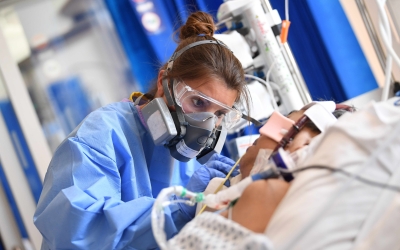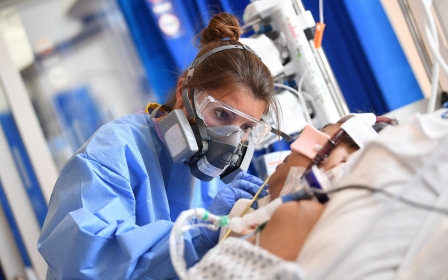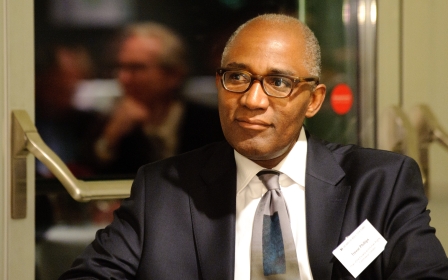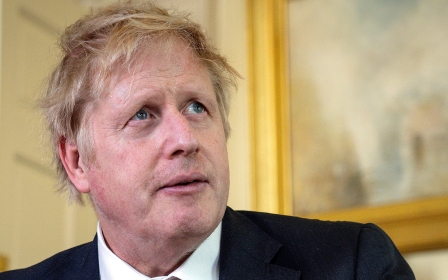Turkish firm under fire in UK over PPE says fiasco a 'misunderstanding'
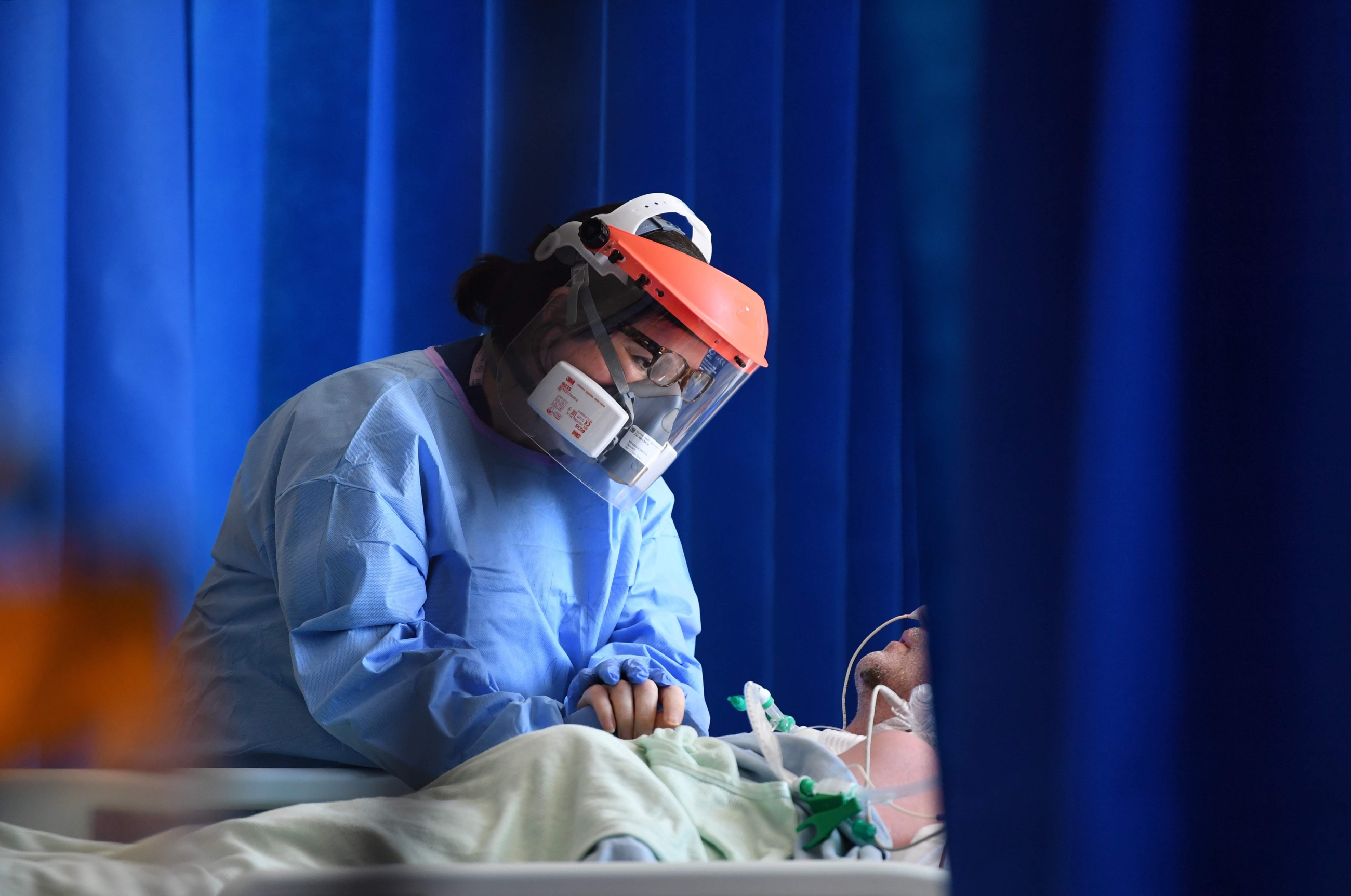
The Turkish supplier accused of delivering “useless” medical gowns to the British government last month told Middle East Eye that it was continuing to work for the National Health Service (NHS) and that it hadn't received any requests for a refund.
On Thursday, the British government issued a series of statements in which it first accused Selegna, the Turkish company, of delivering 400,000 faulty gowns and said that it would ask for a refund.
New MEE newsletter: Jerusalem Dispatch
Sign up to get the latest insights and analysis on Israel-Palestine, alongside Turkey Unpacked and other MEE newsletters
London later retracted its statement as Dominick Chilcott, the UK ambassador to Ankara, said that only a small number of gowns failed tests.
“But more gowns from that supplier have passed tests and are suitable for use in the NHS. The majority of that consignment is still awaiting testing in the UK and in Turkish warehouses,” he wrote on Twitter.
For Mehmet Duzen, whose sister owns the Istanbul-based firm Selegna, everything was a misunderstanding.
Duzen told Middle East Eye that Selegna's first shipment on 21 April included a donation of 2,400 disposable visitor gowns - which sparked the confusion.
“Visitor gowns are lesser quality products because they aren’t meant for surgical use,” he said. “They are in a different fabric than the 32,000 high-risk surgical gowns we delivered that day. When they were testing the fabric, they mixed these two products and started to believe that all of them lack material that repels viruses - but they have two different specifications.”
'When they were testing the fabric, they mixed these two products and started to believe that all of them lack material that repels viruses - but they have two different specifications'
- Mehmet Duzen, Selegna
Duzen said his attempt to make a gesture to the NHS by giving away free material backfired spectacularly.
“All the fabric, all 12 factories we used to produce these medical gowns are certified,” he said. “Had someone not leaked this to the media, personally I wouldn’t have known that there had been an issue with the donations. It was a misunderstanding anyway.”
The misunderstanding surrounding the visitor gowns was not the only strange event of the whole saga.
Duzen says the firm reached an agreement with the NHS last month to produce the gowns starting on 13 April and complete the delivery by the beginning of May. However, he says they didn’t receive a final greenlight from London until 17 April, on a Thursday evening right before a weekend curfew imposed in Turkey because of the pandemic.
Two days later, on 18 April, Britain's Communities Secretary Robert Jenrick announced that 84 tonnes of personal protective equipment (PPE) would be shipped from Turkey the next day.
Duzen and his colleagues rushed to produce as much as they could during the curfew. “The NHS even asked us to collect as many gowns as we could find from other suppliers, but we couldn’t find any,” he said.
There was another problem. Because of a nationwide export control on medical material, Selegna’s gowns were to be held in Turkish customs. Duzen says his agreement with the NHS was only regarding the production of gear - not handling the exportation process.
“It was the British government’s responsibility to get the relevant permits and transportation from the factory to the final destination,” he said.
Eventually, Turkish officials granted the request and a Royal Air Force plane left Turkey on 21 April loaded at only 10 percent capacity - its cargo including a donation of 2,400 visitor gowns and 50,000 masks.
The plane also transported 32,000 medical gowns produced by Selegna, and other gowns supplied by Turkish state firm Ushas to help London in time of need.
'We are still in communication with them every day, and we will provide the shipment when they need it since their daily consumption is really high'
- Mehmet Duzen, Selegna
Duzen says Selegna has so far delivered 300,000 gowns to British authorities, but he doesn’t know if all of them arrived in London, adding that a remaining 100,000 gowns were still sitting in Selegna’s depot waiting to be taken.
“We are still in communication with them every day, and we will provide the shipment when they need it since their daily consumption is really high,” he says.
Duzen says the NHS made large orders to several Turkish companies and may end up with a surplus of products from Turkey.
Duzen downplayed the accusations that Selegna was originally a textile firm established only five months ago to produce T-shirts. He said Selegna was producing suits, coats and denims, whose production process and necessary production machinery were very similar to those used to manufacture medical gear.
“I have been working in textiles since I was 13 years old,” he said. “All of the factories we get our orders from are working for large Western companies such as Zara. All of them have medical certifications to produce these gowns.”
Several Turkish reports indicated that numerous textile firms began to produce masks and gowns at the beginning of the pandemic.
Duzen said the PPE scandal in the UK has actually drawn more support for his company.
“These media reports about Selegna created an additional appeal for our products,” he said. “I received many messages on Thursday from our customers providing emotional support, saying that they know that our gowns are made from high-quality material.”
Middle East Eye delivers independent and unrivalled coverage and analysis of the Middle East, North Africa and beyond. To learn more about republishing this content and the associated fees, please fill out this form. More about MEE can be found here.


